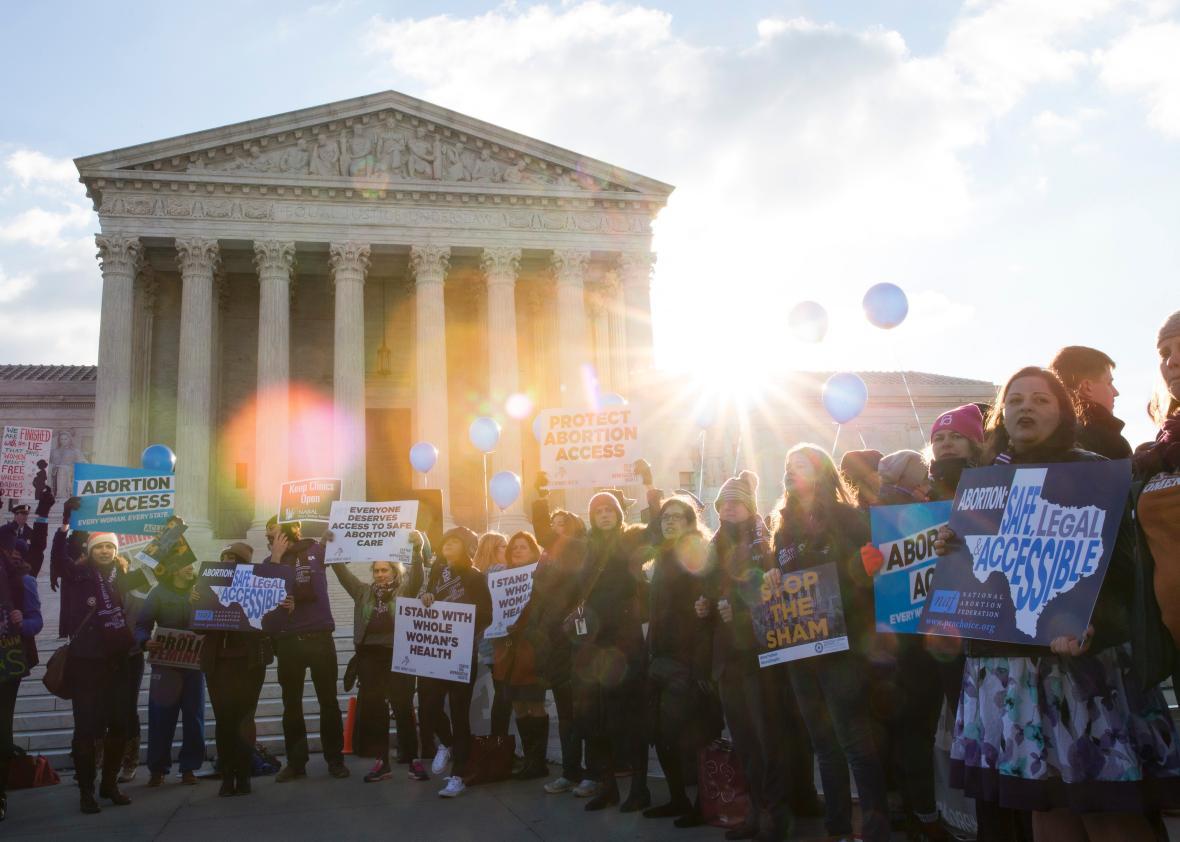The Supreme Court struck down Texas’ stringent laws regulating abortion clinics on Monday in its long-awaited opinion in Whole Woman’s Health v. Hellerstedt. Writing for a five-member majority, Justice Stephen Breyer held that both regulations in Texas’ HB2—one requiring that abortion providers have admitting privileges at nearby hospitals and another forcing abortion clinics to meet surgical-center requirements—impose an “undue burden” on women seeking abortion. Thus, both regulations are invalid under the 14th Amendment of the Constitution.
Whole Woman’s Health marks the first time that the Supreme Court has struck down TRAP laws, which single out abortion providers and impose draconian regulations upon their operations in an attempt to shut them down. The court’s ruling will have a considerable impact on laws in many other states, including Mississippi and Louisiana, which have, like Texas, attempted to regulate abortion out of business. Breyer’s opinion for the court makes clear that these laws—which have the inevitable effect of shuttering most clinics, forcing women to travel long distances to terminate their pregnancies—cannot generally pass constitutional scrutiny, because they impose a “substantial obstance” on the exercise of “a constitutionally protected personal liberty.” His decision vigorously reaffirms the validity of Roe v. Wade and Planned Parenthood v. Casey, infusing the constitutional right to abortion access with new energy.
Justice Ruth Bader Ginsburg penned a brief concurrence noting that, despite Texas’ assertions that abortion is extraordinarily dangerous, “complications from an abortion are both rare and rarely dangerous” in reality. “Many medical procedures, including childbirth, are far more dangerous to patients,” Ginsburg explains, “yet are not subject to ambulatory surgical-center or hospital admitting-privileges requirements” in Texas. “Given those realities, it is beyond rational belief that H.B. 2 could genuinely protect the health of women, and certain that the law would simply make it more difficult for them to obtain abortions.”
“Targeted Regulation of Abortion Providers laws like H. B. 2 that ‘do little or nothing for health, but rather strew impediments to abortion,’ ” Ginsburg concluded, quoting Judge Richard Posner, “cannot survive judicial inspection.”
Chief Justice John Roberts, Justice Samuel Alito, and Justice Clarence Thomas dissented.
Correction, June 27, 2016: This post originally misidentified the organization Whole Woman’s Health as Whole Women’s Health.
